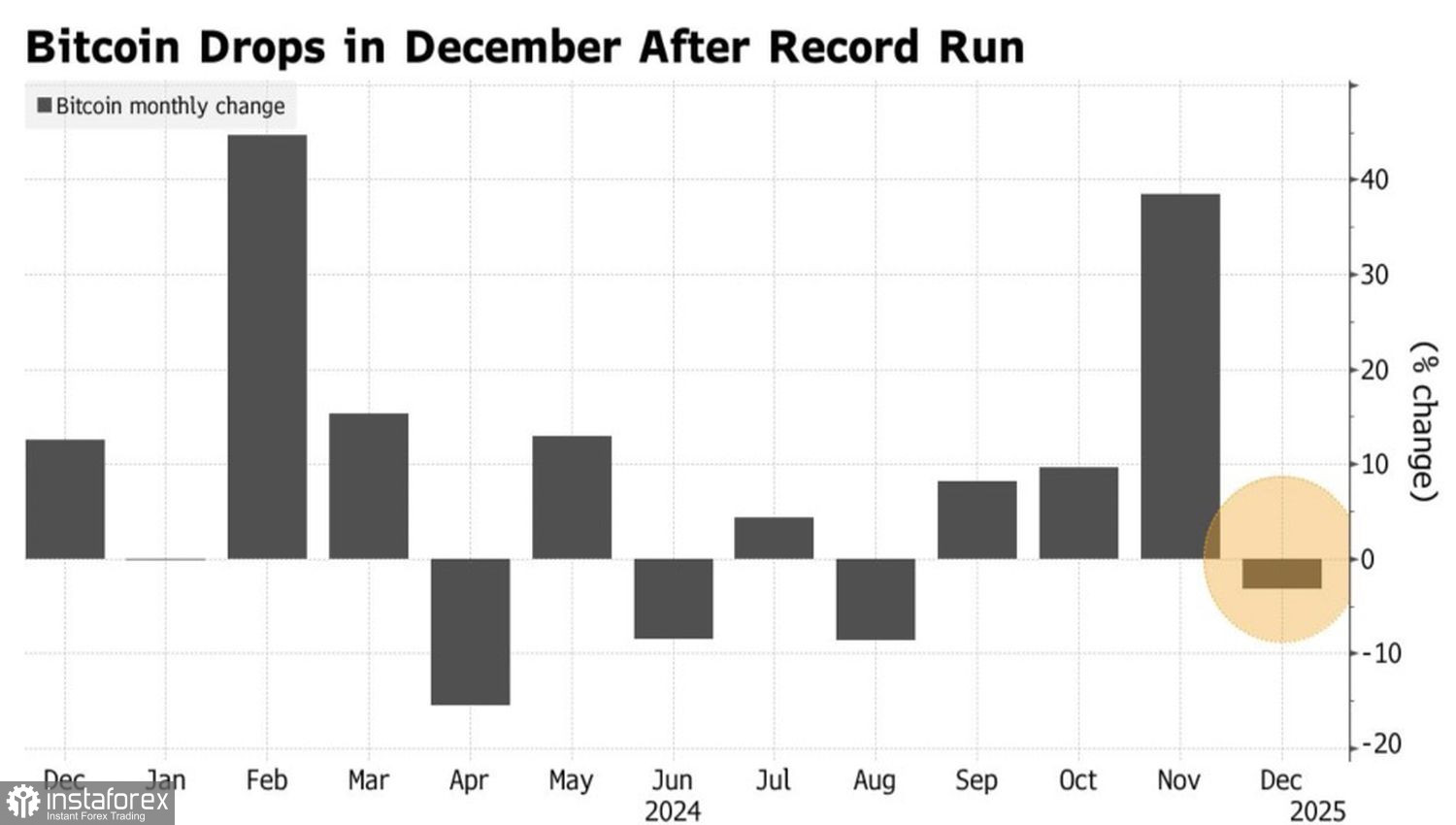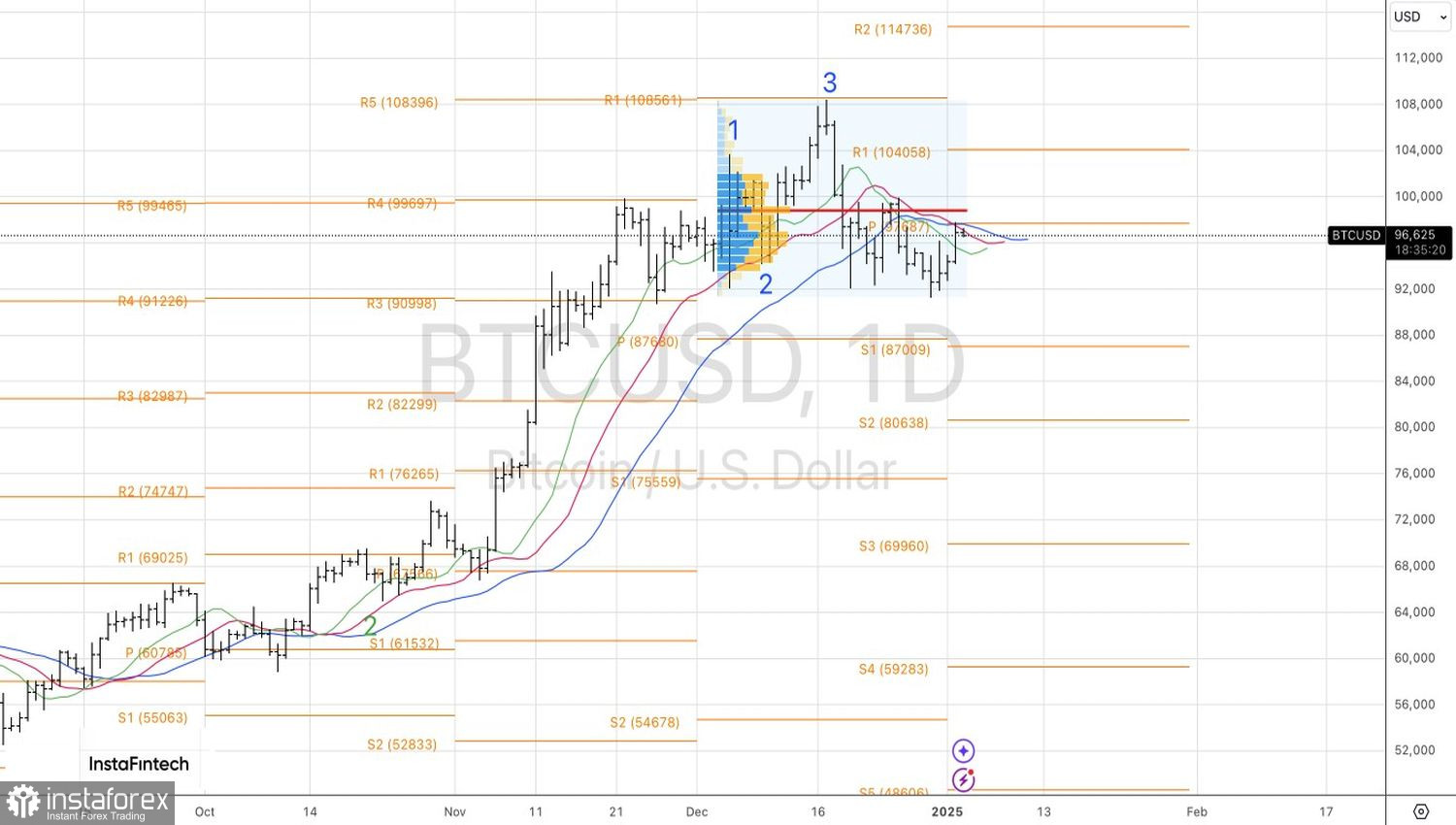Despite a 3.2% decline in December, Bitcoin remains optimistic about the future. This was the first monthly drop for BTC/USD, driven by profit-taking following an impressive 120% rally and a record high above $108,000. Investors took a step back to evaluate which of Donald Trump's promises would materialize. There is little doubt that the Republican president-elect will hit the ground running after his inauguration.
Trump's plan to transform the United States into the crypto capital of the world, which includes creating strategic reserves of Bitcoin, has significantly impacted the digital asset market, similar to the excitement generated by the launch of ETFs at the start of 2024. Since then, BlackRock's largest specialized fund has attracted $37 billion, marking the third-best performance in history for such financial institutions.
Bitcoin's Monthly Performance

Unfortunately, since December 19, Bitcoin-focused ETFs have experienced outflows totaling $1.8 billion, and open interest in CME Bitcoin futures has decreased by 20%. This decline in the number of outstanding contracts suggests a diminishing interest in cryptocurrency derivatives.
Despite this, the futures market shows that contracts with a strike price of $120,000 have the largest bets placed on them. Under favorable conditions, it is possible for BTC/USD to reach $200,000 by 2025. Galaxy Digital supports this prediction, and they are not alone in their outlook.
Trump's appointment of cryptocurrency enthusiasts to key roles in his administration and the Securities and Exchange Commission (SEC) indicates that regulatory bodies may become much more favorable toward the digital asset industry than in the past. However, what does this increased friendliness actually mean?
Crypto advocates are requesting a wide range of reforms: full access to the banking system, the establishment of strategic reserves, and transparent legislation. But will these aspirations become a reality? If they do, the resurgence of the crypto market wouldn't be surprising—a trend where Bitcoin (BTC) experiences three years of growth followed by one year of decline. In this scenario, a price of $500,000 for Bitcoin by 2025 could be within reach.

In my opinion, using budgetary funds to create a strategic Bitcoin reserve is a flawed idea. With the deficit increasing and a debt ceiling crisis on the horizon, allocating resources to digital tokens is not an optimal solution. The digital asset market is likely to face challenges, especially in conjunction with the Federal Reserve's prolonged pause in its monetary easing cycle and a related decline in the U.S. stock market, which could result in a correction for BTC/USD.
On Bitcoin's daily chart, prices are currently in what is known as a "dead zone," where both a resumption of the uptrend and a further pullback are possible. The outcome depends on the bulls' ability to break through the resistance levels at $98,700 and $99,600. If they succeed, it would indicate a return to buying opportunities. Conversely, if they fail, it would suggest a continued focus on selling.





















